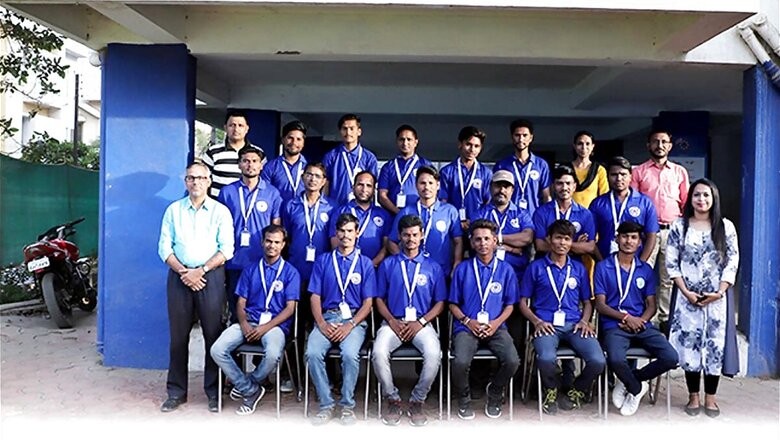
views
Years ago, before India became an independent nation, Mahatma Gandhi exhorted that cleanliness is next to godliness. He also said sanitation is more important than independence. Nearly seven decades after his passing, on 2nd October, 2014, Honourable PM Narendra Modi, launched a nation-wide cleanliness campaign on the occasion of Mahatma Gandhi’s birth anniversary.
The Swachh Bharat Mission is considered the largest sanitation programme in the world. In a five year period, the GoI built millions of toilets and connected almost as many homes to running water through the Jal Jeevan programme. Today, every Indian has access to a toilet. But as the Sub-Group of Chief Ministers on Swachh Bharat Abhiyaan found, behavioural change continues to be an area of focus.
Public toilets, be they at your local cinema, on flights or even the local Sulabh Sauchalaya, are considered to be “someone else’s responsibility”, and therefore become no one’s responsibility. The state of our public toilets reflect how we, as a society, feel about sanitation overall.
Behaviour change is the second half of the problem of sanitation. Culturally, we still see sanitation work as ‘dirty work’ and this labelling unfortunately extends to sanitation workers. As a society, we need more sanitation workers. But can we attract people to a profession that has so few rewards and so much discrimination?
This is the problem Harpic set out to solve with its World Toilet Colleges. First established in 2016, these Toilet Colleges work towards improving the quality of life of manual scavengers through their rehabilitation by linking them with dignified livelihood options. The college operates as a knowledge sharing platform with an aim to uplift the lives of the sanitation workers by educating them about their rights, health hazards, use of technology and alternate livelihood skills. Workers trained by the college are provided placement with various organisations. Following the successful proof of concept in Rishikesh, World Toilet Colleges have opened in Maharashtra, Aurangabad, in partnership with Harpic, Jagran Pehel and Maharashtra Government.
Harpic, together with News18, created the Mission Swachhta aur Paani initiative 3 years ago. It is a movement that upholds the cause of inclusive sanitation where everyone has access to clean toilets. Mission Swachhta aur Paani advocates equality for all genders, abilities, castes and classes and strongly believes that clean toilets are a shared responsibility.
On the occasion of World Health Day, Mission Swachhta aur Paani is leading a spirited discussion amongst policy makers, activists, actors, celebrities and thought leaders with a panel from News18 and Reckitt’s leadership on the many ways in which poor toilet hygiene and sub-standard sanitation affects us all.
How toilets affect our families
Poor sanitation affects different members of our families in different ways. Children are particularly vulnerable to disease and infection when living in unsanitary conditions. Diarrhoea caused by poor toilet hygiene is a leading cause of death among children under five, killing an estimated 300,000 children in India each year. Vulnerable elders face similar risks due to weakened immune responses and poor toilet sanitation practices, which can also increase their risk of falls and injuries.
Access to toilets is also a problem for differently abled individuals. Most public toilets are cramped and difficult to access by wheelchair, with some even lacking ramps. Dirty and poorly maintained toilets compound these problems, creating additional difficulties for people with impaired vision who depend on consistency.
An unclean toilet poses particular threats to women, who are more susceptible to urinary tract infections due to the shorter length of their urethra. ‘Holding it’ can also create unnecessary pressure on internal organs, negatively impacting kidney function. Dirty toilets also expose women to various infections during menstruation, making changing sanitary napkins in dirty toilets risky.
Trans people face similar issues as women do, in terms of safety and privacy. In India, toilets do not cater to this group, creating difficulties and danger due to transphobic attacks.
Men also carry risks for UTIs and kidney problems due to poor toilet habits, which can affect the whole family that shares the toilet with them.
How toilets have changed the way we live
For women in particular, access to toilets can translate into life changing consequences. Girl children have, in the past, had to drop out from schools because going to school involved ‘holding it’ the whole school day – there were no toilets. Or if the toilets existed, they weren’t in usable condition. At workplaces too, especially in the unorganised sectors, this lack of toilets often created productivity problems and posed another hurdle to more participation by women in the workforce.
During the Mission Swachhta aur Paani panel discussion, both Sania Mirza and Kajal Aggarwal recounted several instances when they had to do without, simply owing to the state of the toilets. We have, of course, come a long way since then. Mindsets are changing, with young people leading the charge. Children are being taught about toilet hygiene, sanitation practices, and water conservation in schools, and they carry these lessons home. Children who grow up using the toilet, even if only at school at first, never go back to the old ways. There are several stories of children championing the cause at home, resulting in the family’s adoption of their own toilet.
The road ahead
We still have a long way to go before toilet hygiene and good sanitation practices become second nature for all Indians. We still hold on to some antiquated mindsets about toilet care. Even in urban, educated families, toilet cleaning is seen as a chore to be avoided. When not outsourced to the hired help, it defaults to the women of the household.
We apply the same mindset to our public toilets – if you’ve ever seen a filthy toilet on a flight, at a stadium or in a movie theatre, you know this isn’t a problem of the poor or the uneducated. As the Swachhta ki Paathshaala teaches, apne peeche dekho: Are you leaving the toilet as clean as you found it? If each of us takes care of the next person in line, we all get to use a clean toilet.
As Mahatma Gandhi realised all those years ago, clean toilets are the way a Swachh Bharat will lead to a Swasth Bharat. As the Mission Swachhta aur Paani slogan goes, Healthy Hum, Jab Saaf Rakhein Toilets Har Dum.
Join us here for a larger discussion on the link between toilet hygiene, sanitation, disease, and health. The World Health Day event also featured a keynote address by Reckitt leadership, interactive Q&A sessions, and panel discussions. The speakers included Union Minister of Health & Family Welfare, Mansukh Mandaviya, Deputy CM of Uttar Pradesh, Brajesh Pathak, Director of External Affairs & Partnerships, SOA, Reckitt, Ravi Bhatnagar, UP Governor Anandiben Patel, actors Shilpa Shetty and Kajal Aggarwal, Regional Marketing Director of Hygiene, Reckitt South Asia, Saurabh Jain, sportsperson Sania Mirza and Padma Shri S. Damodaran, Founder of Gramalaya, among others. The event also featured on-ground activations in Varanasi, and interactions with Safai Mitr and Swachhta Praharis who are making a tangible difference at a grassroot level.
Read all the Latest News here




















Comments
0 comment